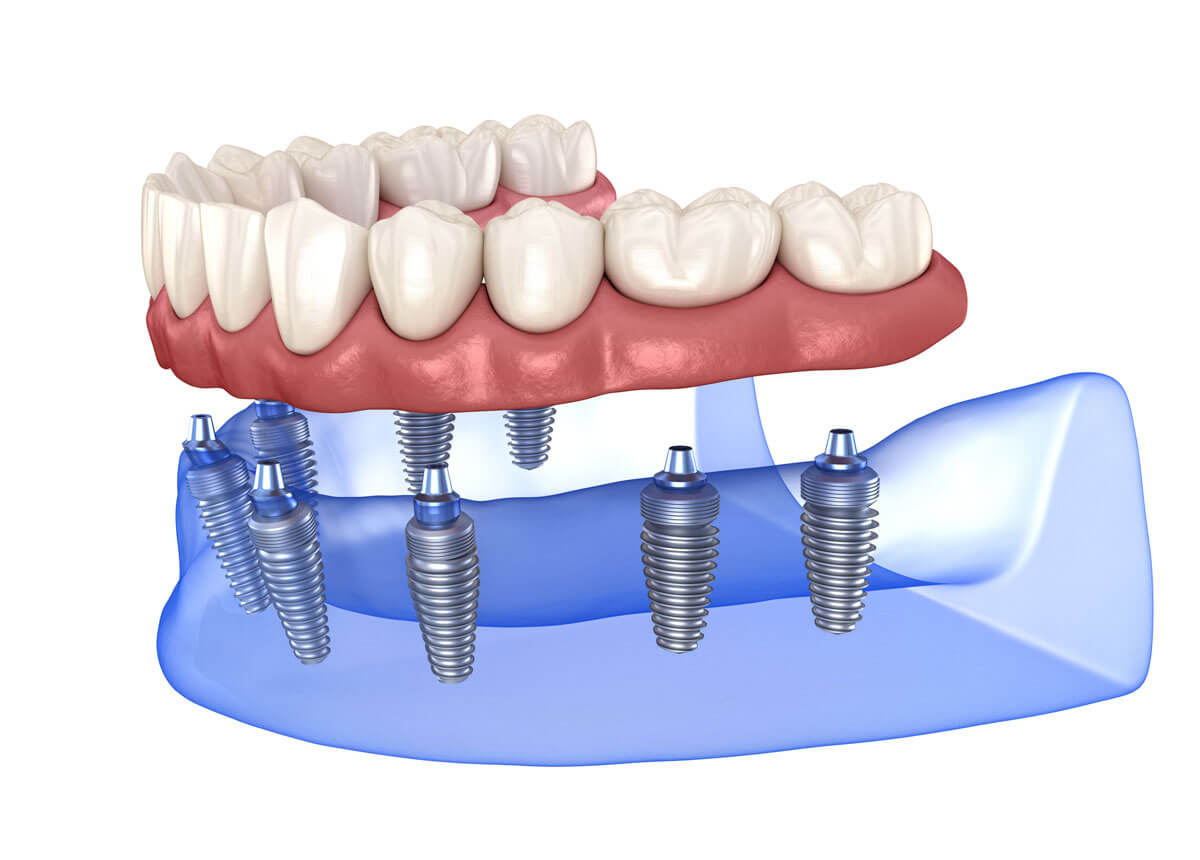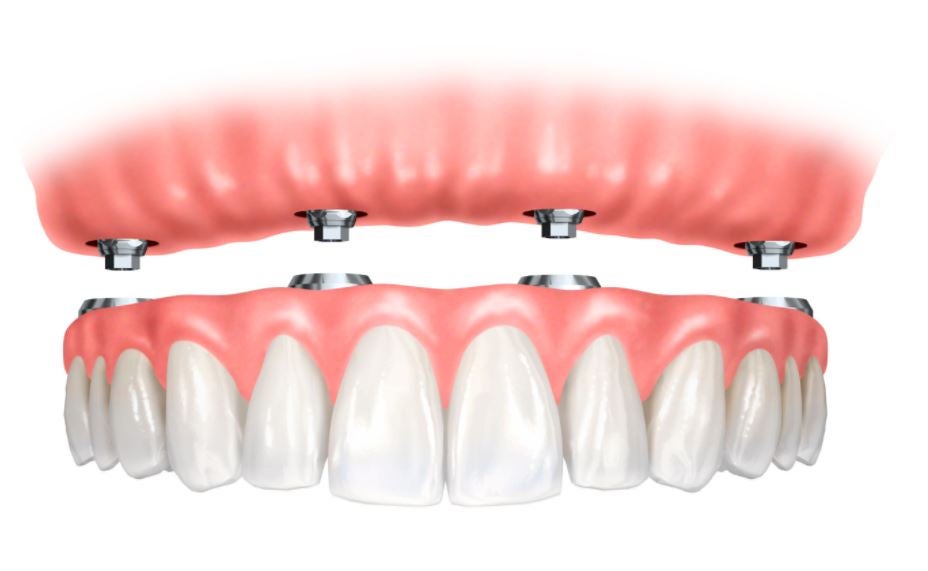An Unbiased View of Dental Sense
Table of ContentsThe Basic Principles Of Dental Sense Not known Details About Dental Sense Some Ideas on Dental Sense You Need To KnowDental Sense for Beginners
are medical tools surgically implanted right into the jaw to recover a person's capability to eat or their appearance. They provide assistance for artificial (phony) teeth, such as crowns, bridges, or dentures. When a tooth is shed due to injury or illness, a person can experience complications such as quick bone loss, defective speech, or adjustments to chewing patterns that lead to discomfort.Dental implant systems include a dental implant body and oral implant abutment and might additionally consist of a joint addiction screw. Dental implants. The dental implant body is surgically inserted in the jawbone in area of the tooth's root. The oral implant joint is normally affixed to the implant body by the abutment fixation screw and expands via periodontals right into the mouth to sustain the connected synthetic teeth
(https://www.tripadvisor.in/Profile/dentalsense1)Structure of The Dental Implant System picking dental implants, talk with your dental service provider regarding the prospective advantages and dangers, and whether you are a candidate for the treatment. Things to take into consideration: Your general health is an essential consider figuring out whether you are a great prospect for dental implants, the length of time it will take to recover, and for how long the implant might remain in location.
Smoking may affect the recovery process and reduce the lasting success of the implant. The recovery process for the dental implant body may take a number of months or longer, during which time you commonly have a short-term abutment in place of the tooth. the oral implant treatment: Very carefully adhere to the dental health instructions provided to you by your oral supplier.
Things about Dental Sense
Implant failing can lead to the requirement for one more operation to repair or change the dental implant system. Brings back the ability to eat Brings back aesthetic look Aids keep the jawbone from shrinking because of bone loss Protects the health of the bordering bone and gum tissues Helps maintain surrounding (nearby) teeth secure Enhances high quality of life Damages to bordering natural teeth throughout implant positioning Injury to the surrounding tissues during surgery, such as sinus perforation Injury during surgical treatment (for instance, crack of bordering jawbone) Insufficient function, such as seeming like the teeth do not bite with each other generally A sensation that the tooth hangs or twisting in location resulting from an abutment screw loosening up Implant body failure (looseness of the dental implant body) as a result of systemic infection, which might be most likely in patients with uncontrolled diabetes as a result of local infection in bone and periodontals sustaining the implant body as a result of postponed recovery, which might be most likely in people who smoke Difficulty cleaning the gums around the dental implant, resulting in bad oral health Without treatment gum disease Post-surgical pins and needles because of nerve impingement or damage Always notify healthcare providers and imaging specialists that you have dental implants prior to any type of magnetic resonance imaging (MRI) or x-ray treatments.
FDA is not mindful of any type of damaging events reported for MRI or x-ray treatments with oral implants. Dental implants systems are generally made from products that adhere to global agreement requirements of the International Organization for Standardization (ISO) or ASTM International. These criteria have information of what makes a risk-free material.

A dental implant is a structure that replaces a missing tooth. With screw-like tools, the doctor inserts a dental implant right into the jawbone, and it acts as a support for a synthetic tooth, called a crown.
Dental Sense Things To Know Before You Buy
Some individuals are not eligible for oral implant surgery. It is for dental cosmetic surgeons to operate individuals with: intense illnessuncontrollable metabolic diseasebone or soft cells illness or infectionIf these concerns are fixed, a person can have the surgery. In, oral cosmetic surgeons avoid operating on individuals with: If individuals with any one of the above undergo dental implant surgical procedure, there is a higher risk of the implant stopping working.

Dental implant surgical treatment is a customized procedure. It's not the same for every person. But the adhering to gives a basic introduction of what you can anticipate your dental practitioner, oral cosmetic surgeon, periodontist or prosthodontist to do: Position the dental implant operatively. Give you time to heal. Attach the article and final crown, bridge or denture.
Next, your doctor will thoroughly place the oral implant right into your jaw. If your dental implant is near the front of your mouth, your dental practitioner will make a temporary tooth for you to put on till you heal.
The Ultimate Guide To Dental Sense
Your supplier can inform you what to anticipate in your scenario. During the recovery stage, your jawbone needs to fuse to use this link the dental implant. This process, called osseointegration, is vital for stability and long-term success. This process can take anywhere from three to nine months. Sometimes, it may take longer.
When your implant heals, your dentist can connect the abutment (little connector blog post) and your final reconstruction (crown, bridge or denture). This generally takes regarding one hour to complete and might need a second small surgery. You shouldn't really feel any type of pain during your dental implant procedure due to the fact that your service provider will certainly use drug to numb your gum tissues.